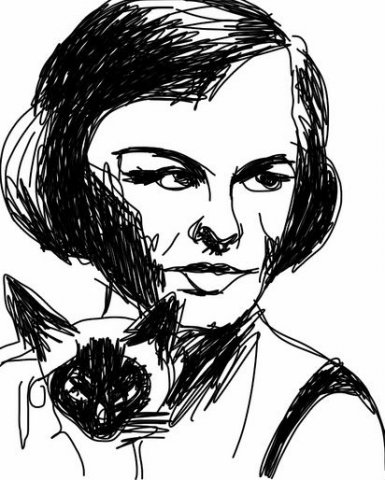Patricia Highsmith, Novel-Building and Competition Deadlines
Posted by Luke Neima on Fri, 30 May 2014
This Sunday is the deadline for our latest ABC competition – 100 Years On - so this weekend is your last chance to write and submit. The judge, Francisco Vilhena of Granta Magazine, will be tackling the reading from early next week. Give it a shot – the prize is nearing 50£ for both poetry and prose, and winners will be announced on June 16th.
As I’m not eligible to enter this competition I’m attempting to adhere to a parallel, internal (and far inferior) deadline in my ongoing effort at novel-writing. The book's enjoyed many fortuitous beginnings, false starts, side roads and dead ends, and though dragging out that process seems to have become one of my favourite activities, I’m hoping to finish a rough draft by the end of the week.
I’ve gone ahead and gathered together in one, web-like tangle all the scenes, dialogues and descriptions I’ve secreted away in a half-dozen word docs over the past year or so, and printed them out in one long, very vulgar gesture to the rainforest. I always have trouble getting my plotting finished and I hope working on paper will help – the whole question of structure is, counter-intuitively, something I've only decided to tackle at the end of the project. Which makes for a long project. The process feels a bit like tackling an old jigsaw puzzle with most of the pieces missing out of it, or building a spider-web backwards, spinning the mass of it into a long, entropic knot before seeking out a few firm holds to string it up on.
A lot of my recent – and most useful - plotting has come sideways out of the back catalogue of Patricia Highsmith. Highsmith is one of the 20th century’s true masters of plot. By page ten you’ve got a few existential questions on your hands, and by page sixty a couple of murders. The two go together like guns and bullets. But the interesting thing in Highsmith are the characters, these walking trigger-fingers twitching their way into action, then justification, then a couple of campari sodas on a Mediterranean beach somewhere.

Ipad art courtesy of Renée
When she gets a particularly good thing going, I find myself reading really slowly, trying to interpret the way she's managed to move the plot along so quickly. The way a character suddenly (but naturally) sprouts a grudge, or a plane ticket somewhere, or a wake of destruction. Then I sit myself down and do my best imitation of action verbs and see if they can manage anything in a setting without psychopaths and serial killers (spoiler alert: this novel I’ve been working on is not very exciting). It’s been good fun. And I’ve got the remains of the Ripliad on order, so if the writing fails at least I'll have some good reading to look forward to.
On to more successful (and finished) writing projects - our poem of the week is Jem’s ‘I Wish You’d Dye Your Hair.’ It’s a hard-hitting look at objectification and the way gender continue to define women. ‘You must be frigid, / You must be an angel, /You’re eight out of ten. / I wish you’d dye your hair.’ This is difficult and important work.
Our story of the week is The Girl Who Grew Horns, an imaginative new world from Grover. This story sits somewhere between YA fiction and horror: the end of times, it turns out, is surprisingly banal – devils and angels walk among us, but they’re more often considered a disfigured minority than divine – or evil. Our protagonist has wings. The question is, does that make her an angel or a demon? This short piece could easily be the seed of a novel – and I hope one grows out of it soon.
I’ll leave you with a quote from the man behind this week’s inspiration point – G. K. Chesterton, who, it turns out, was born yesterday (the 29th of May, 1874):
The central idea of poetry is the idea of guessing right, like a child.
- Luke Neima's blog
- Log in to post comments
- 1880 reads



Comments
A real misanthrope - but she
A real misanthrope - but she tended very carefully to her menagerie of slugs. Wouldn't go to a dinner party without them.